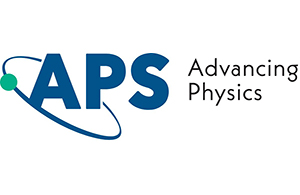La American Physical Society (APS) es una de las sociedades científicas con mayor número de socias/socios del mundo. En esta carta describen algunas de las acciones llevadas a cabo con el fin de evitar cortes al presupuesto estatal destinado a financiar investigación básica y aplicada. Si bien la comunidad científica argentina ha señalado las graves consecuencias que trae aparejadas este tipo de medidas, la declaración de la APS pone de manifiesto que no importa el tamaño de la economía, su nivel de desarrollo, o el número de empresas tecnológicas presentes en un país, el papel del estado es fundamental e irreemplazable, que no hay economía inmune a la desfinanciación de la ciencia, También pone de manifiesto aún más, si es que hiciera falta, que la financiación de la ciencia NO es un tema partidario o regional, si es político y estratégico.
August 14, 2025
Dear Colleagues,
Recent U.S. policy developments have raised serious concerns among physicists in the United States and across the global scientific community. The American Physical Society (APS) believes that science thrives through integrity, transparency, and reciprocity, and reaffirms its commitment to stand firmly behind those principles — values that unite researchers worldwide.
Many of you have asked what APS is doing in response to actions that threaten the future of science and international collaboration. With this update, we wish to share how we are working to support science and scientists at this critical time. We also want to highlight our efforts to continue global engagement and ensure that physicists — wherever they may be — have access to timely, reliable information and resources through APS and its partners.
Please share this update widely within your societies and networks. Science is a global endeavor that depends on the collective strength of our community.
Fighting for federal science budgets
President Trump released his proposed 2026 budget in May, including cuts of approximately 50% to science. We are pushing back with a grassroots advocacy campaign directed towards Congress, where the final budget is determined. To date, the campaign has involved more than 3,000 advocates, led to face-to-face meetings with policymakers, and generated over 10,000 letters to members of Congress, reaching every senator and well over 300 representatives.
As part of that campaign, we identified nine states whose senators will listen to our message. For those states, we:
• Arranged for APS members to meet with staff in each of their local offices
• Helped members write letters-to-the-editor and op-eds for publication in local newspapers
• Created advocacy materials tailored to each state, with details on how the proposed cuts would impact their constituents
APS will continue advocating to the House and Senate appropriations committee and subcommittees, which set the government’s annual spending levels. We submitted written testimony in support of funding for:
• National Science Foundation (NSF)
• National Institute of Standards and Technology (NIST)
• National Aeronautics and Space Administration (NASA)
• Department of Energy Office of Science (DOE)
In that testimony, we highlighted the importance of federally funded fundamental research and the contributions it makes to science, technology, innovation, and the U.S. economy.
We believe these efforts helped influence the Senate subcommittee to propose approximately level funding for NSF and NASA science, in contrast to the President’s proposed budget, which slashed them by half.
APS is committed to protecting these essential investments in science, which determine the futures of young scientists and support economic progress in the world. When we fight for funding, we are fighting for people and the impact they will have. As the House undertakes its own appropriations deliberations, APS will remain vigilant and committed to securing robust, bipartisan support for science funding.
Defending the federal science workforce
As you may have heard, the U.S. government is eliminating thousands of positions in federal science agencies. APS is gravely concerned by the way the dismissals were carried out, and the consequences they will have for the global scientific enterprise.
In response, APS has filed a series of legal briefs in support of employees at agencies including DOE, NSF, NIST, NASA, and NOAA, the National Oceanic and Atmospheric Administration. Many of these civil servants are fellow physicists whose careers and contributions are vital to the progress of science. Our briefs make the case that there is no evidence that these terminations meet the government’s stated goals of restoring efficiency and reducing waste; instead, we argue that the firings harm the public interest.
We have been joined in this effort by the American Astronomical Society, American Political Science Association, American Mathematical Society, ACA: The Structural Science Society, Ecological Society of America, Society for Industrial and Applied Mathematics, and SPIE, the international society for optics and photonics. The cases are before the courts now.
Supporting international students and scholars
At APS, we understand that international mobility is critical for the progress of science. We are alarmed by U.S. visa policies becoming ever more restrictive and being used as leverage in trade negotiations. APS is taking action on several fronts, including:
• Meeting with members of Congress to ensure the fair treatment of international students and scientists
• Preparing legal briefs to defend against unjust visa revocations and to challenge actions that put our community at risk
• Opposing new rules that would create additional barriers for international students who want to study in the U.S.
APS members have sent over 600 letters to Congress asking that visa policy changes be made thoughtfully, with opportunities for public discussion and input. At the same time, we are enabling greater global participation in our meetings, making it easier for scientists everywhere to connect with their colleagues.
We will continue communicating with policymakers about the value of international students and researchers and the harm caused by exclusionary or punitive actions. Our aim is to not only protect the rights of individuals, but to preserve opportunities for international scientific mobility — the lifeblood of scientific discovery. The health of the scientific enterprise is at stake.
Strengthening global engagement
APS is also standing in solidarity with partner scientific organizations worldwide. In particular, we worked with an international roundtable of physics society leaders to develop a statement, “Principles and Policies for International Scientific Collaboration.” Signed by 35 societies so far, the statement urges policymakers everywhere to enact visa policies that foster scientific mobility, promote international research collaborations, and open opportunities for early career scientists, based on the shared values of integrity, transparency, and reciprocity. We will continue to collaborate with national physics societies worldwide to foster shared action on global challenges and opportunities.
In addition to advocacy, APS is taking steps to ensure that global scientific exchange continues to thrive, including expanding access to our Global Physics Summit via satellite site offerings. Here, physicists across the globe can gather at APS-sponsored events in their local communities to share their research with global colleagues through the virtual meeting platform.
In 2025, more than 1,100 scientists across 16 countries participated in the Global Physics Summit through such satellite events, sponsored by the Purpose-Led Publishing coalition. For
2026, we are expanding our satellite offerings so that more local communities can engage via programming. This will allow more international scientists to participate in the Summit.
Along with expanding access to the Global Physics Summit, APS is also increasing access to its publications. APS has partnered with Research4Life to provide thousands of universities, schools, government offices, and non-governmental organizations with free or low-cost access to the Physical Review collection of journals.
In conclusion, we’d like you to know that APS remains committed to defending the scientific enterprise, expanding international cooperation, and standing by physicists worldwide. That commitment is grounded in our enduring mission, to “foster a vibrant, inclusive, and global community dedicated to science and society.” We understand that issues in the U.S. can affect physicists beyond our borders, and we appreciate your support and welcome your ideas for how our organizations can work together to promote shared values and overcome shared challenges.
Please don’t hesitate to reach out directly at president@aps.org. Remember, we are stronger together than we are apart.
Sincerely,
John M. Doyle
APS President
Jonathan A. Bagger
APS Chief Executive Officer

